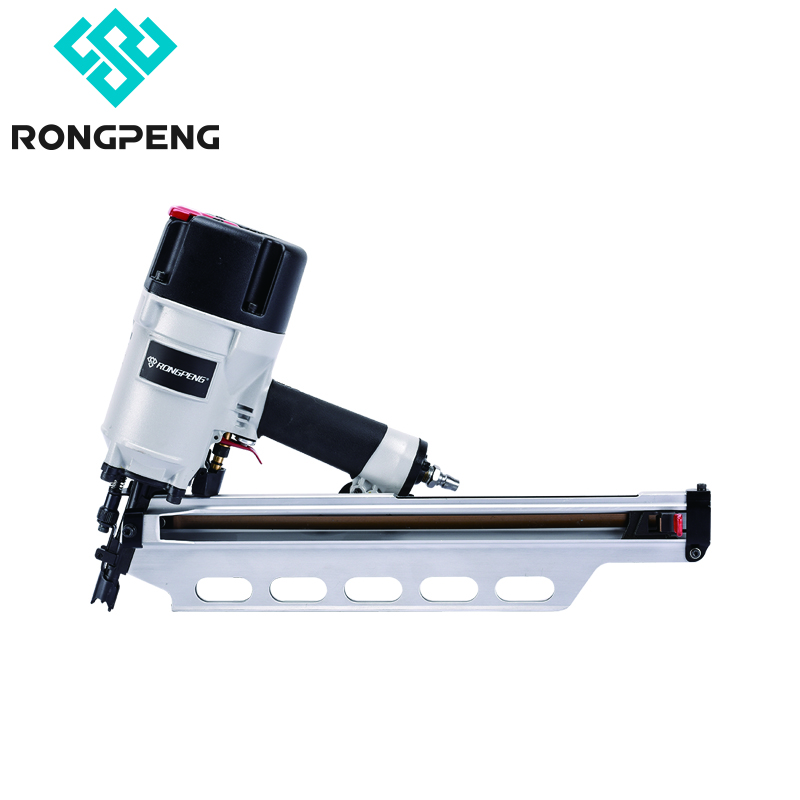

For framing nailers, the degree of the
nailer refers to the angle of the magazine in relation to the handle. Framing nailers come in different angles such as 34°, and 21°. Each degree has its own advantages and best uses.
Many carpenters prefer a 34° framer because it allows the nails to penetrate deeper into the wood and creates a stronger connection. The 34° nailer allows for easy nailing in vertical applications but also works well for angled surfaces, diagonal framing, and nailing floor joists. This combination of versatility and reduced strain on the wrists makes the 34° one of the most popular options.
For framing jobs that require a bit more power, a 34° nailer is an excellent choice. The steeper magazine angle allows more force to be delivered behind each nail. This makes 34° nailers ideal for engineered lumber like LVL beams that are dense and hardened. The downside is that a 34° nailer can be harder to wield in tight spaces thanks to the upright magazine. But for driving large nails through thick, engineered framing lumber, nothing beats the driving power of a 34° nailer.
21° framing nailers have a lower magazine angle. This allows for nails to be driven horizontally or even upward. 21° nailers are great for nailing top and bottom wall plates to studs since you don't have to reach up or bend over. The lower center of gravity also makes them less tiring for overhead nailing. However, the lower angle means less power delivery, so you may have issues properly driving larger fasteners into hardwoods. But for light duty framing with smaller nails, a 21° nailer can be much more comfortable and easy to use.
For primarily horizontal nailing like subfloors or sheathing, a 21° framer really shines. The shallower angle allows you to keep your elbow closer to your body and work with a straight wrist while nailing downward. This prevents fatigue and strain that can come from constant wrist bending with a 34° nailer. The trade-off is reduced power and smaller magazine capacity.
As for size and weight, there typically isn't much difference between 21 and 34 degree framing nailers. The magazine, motor and other components are very similar. Although, some 34 degree models may be slightly bulkier.
When deciding what degree nailer is best for your needs, consider what you will primarily use it for. If you mainly frame walls and roofs, a 34° framer is your best bet. They have the versatility to tackle most framing jobs with power and capacity to spare. For flooring or sheathing work, a 21° framing allows you to work comfortably and avoid fatigue. It excels at angled downward nailing. For most carpenters, a 34° framer gives you the best blend of power, capacity, and ergonomics to handle framing projects of all kinds.
If you not sure which framing nailer is more suitable for you,you can contact with us: rongpeng@rongpeng.com for help.